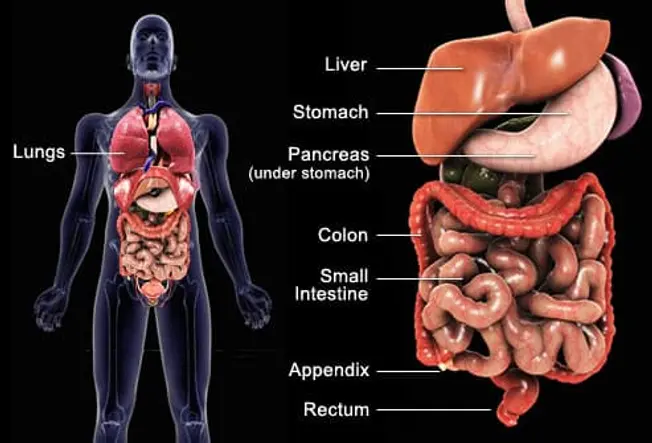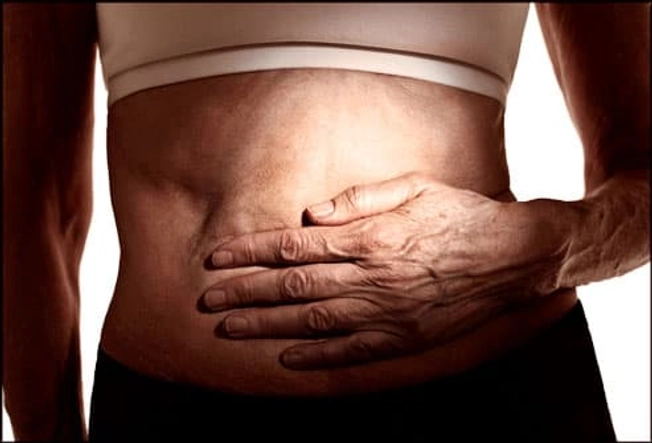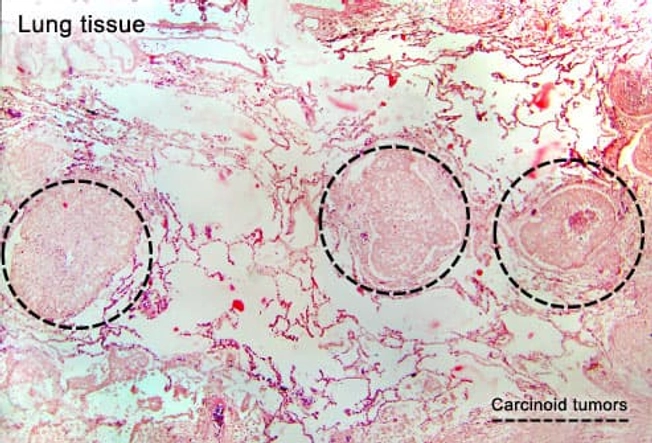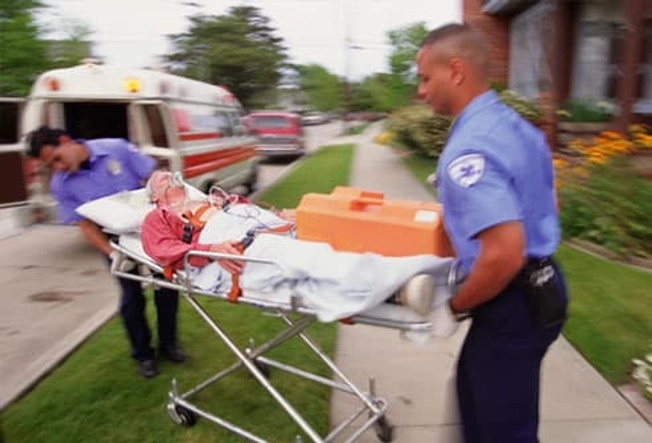- Overview
- Causes, Risks & Prevention
- Symptoms & Types
- Tests & Diagnosis
- Your Cancer Care Team
- Treatment & Side Effects
- Treatment Support
- Living With
- Remission & Recurrence
- Support & Resources
- Appointment Prep
- View Full Guide
Slideshow: Carcinoid Syndrome


Where Tumors Occur
Carcinoids are slow-growing tumors. The tumors sometimes begin in the lungs and rarely occur in the ovaries, testicles, or pancreas. Most grow in the gastrointestinal tract and are most often found in the small intestine, appendix, and rectum. Intestinal carcinoid tumors can also spread to the liver and then to the lungs, bones, skin, and other organs. Carcinoid tumors release hormones and other chemicals into the bloodstream. In excess, these hormones cause the symptoms of carcinoid syndrome.

A Set of Symptoms
Carcinoid syndrome occurs when these tumors have spread to organs outside the intestine. The syndrome can also occur with a carcinoid tumor of the ovary. The symptoms of carcinoid syndrome may not occur for several years, if they occur at all. Many of its symptoms mimic those of other medical conditions, such as irritable bowel syndrome.

Facial Flushing
Bright red flushing of the face, neck, or upper chest is one of the most common symptoms of carcinoid syndrome. Flushing occurs when excess serotonin or other chemicals in the blood cause blood vessels to dilate. The flushing can feel warm or be uncomfortable. Facial flushing is temporary and can last from a few minutes to several hours. Flushing and other symptoms can be triggered by certain foods, alcohol, and stress.

Diarrhea
Diarrhea is a common symptom of carcinoid syndrome and is also the result of excess hormones being secreted by the tumors. Sometimes the diarrhea may be accompanied by intestinal pain, cramping, and gas. In some cases, when diarrhea is severe, malabsorption of food and nutrients can occur.

Wheezing
Wheezing can be a sign that you're having trouble breathing. It sounds like a whistling noise. Wheezing can be a sign of lung problems like asthma, bronchitis, pneumonia, or emphysema. The wheezing and shortness of breath brought on by carcinoid syndrome are most pronounced during flushing attacks.

Heart Problems
Carcinoid syndrome can cause damage to the heart. It can cause a rapid heartbeat, low blood pressure, a heart murmur, tiredness, or shortness of breath with activity. Heart failure, a complication of carcinoid syndrome, can cause swelling in the legs and feet. Carcinoid heart disease eventually occurs in more than 50% of patients with carcinoid syndrome.

Cushing's Syndrome
Sometimes carcinoid tumors produce a hormone called ACTH (adrenocorticotropic hormone). ACTH can make the adrenal glands produce too much cortisol and other hormones. Too much cortisol can cause Cushing's syndrome. Symptoms include weight gain, high blood pressure, high blood sugar, muscle weakness, and an increase in body and facial hair.

Pellagra
Pellagra is the condition that occurs as a result of severe niacin deficiency. Carcinoid syndrome can cause pellagra when carcinoid tumors use the body's tryptophan to make serotonin instead of niacin. The symptoms of pellagra include diarrhea, dementia, and dry skin. Other symptoms of pellagra are scaly skin sores, headaches, weakness, loss of appetite, and psychiatric and emotional disturbances such as depression and anxiety.

Other Symptoms
Facial flushing, diarrhea, abdominal pain, and wheezing are the most common symptoms of carcinoid syndrome. But other symptoms may develop, too. These can include rashes, anxiety, or feeling disoriented. If you have questions or concerns about your health, it's best to talk with your doctor.

What Triggers Symptoms?
Symptoms of carcinoid syndrome can be triggered or made worse by strenuous activities and physical and emotional stress. Drinking alcohol or eating certain foods may also trigger symptoms. Certain medications can also make symptoms worse. These include some drugs used to treat depression, such as fluoxetine (Prozac) and paroxetine (Paxil).

Foods High in Tyramine
Foods high in tyramine can trigger some of the symptoms of carcinoid syndrome, including headache, high blood pressure, palpitations, increased heart rate, flushing, and loss of consciousness in some people. Tyramine is a natural ingredient found in some foods. The amount varies from food to food. Tyramine is high in spoiled proteins and foods that are aged or fermented, such as cheeses, smoked or salted meats, alcohol, and nuts. Avoid foods that are high in tyramine if you experience a strong reaction to them. You may be able to eat small amounts of foods that have less tyramine.

Having a Carcinoid Crisis
A "carcinoid crisis" happens when the tumors release an overwhelming amount of hormones and the more serious symptoms of carcinoid syndrome occur together. Irregular and life-threatening heart rhythms, severe increases or drops in blood pressure, extreme difficulty in breathing, and delirium can happen during these episodes. It can be triggered by chemotherapy, anesthesia, or manipulation of a tumor during biopsy. Sometimes it occurs suddenly for no reason. The drugs lanreotide and octreotide control carcinoid crises by increasing low blood pressure and regulating hormone production.